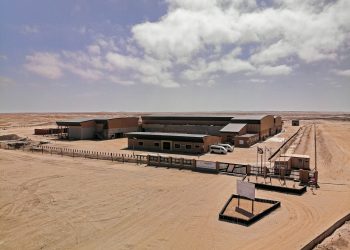
The Namibian government has introduced the draft Gas Bill, aimed at creating a national regulatory framework for the midstream and downstream gas sectors.
The Bill, introduced by the Minister of Mines and Energy, focuses on licensing, safety and the efficient operation of gas activities, while also emphasizing environmental responsibility.
According to the lead legal advisor from Millennium Consultancy Services, Jacqueline Scholz, the framework will cover gas processing, transmission, storage, distribution and trading, along with third-party access to gas infrastructure.
It also aims to ensure fair competition, regulate tariffs and promote local content and employment equity. Scholz emphasised the importance of adaptability in the proposed legislation.
“We are drafting a flexible bill that can adapt to technological advancements and market changes. This approach minimises the need for frequent legislative amendments, ensuring that the framework remains relevant over time,” she said at a recent workshop.
She noted that Namibia’s gas sector is currently limited to liquefied petroleum gas (LPG) but is poised for expansion following recent offshore gas discoveries and green hydrogen initiatives.
According to Scholz, discussions are ongoing about whether LPG should be governed under the new Gas Bill or the existing Petroleum Products and Energy Act.
“Investor confidence hinges on a robust regulatory framework. Our goal is to create a competitive, transparent market while ensuring that regulations do not stifle innovation or impose excessive costs,” Scholz noted.
The Bill will focus on downstream activities, leaving upstream regulation under the Petroleum Exploration and Production Act.
Scholz clarified that the legislation would cover both natural and synthetic gas, though final decisions on synthetic fuels are still pending.
“This is a critical step in positioning Namibia as a key player in the regional energy market. With the right framework, the gas sector can drive economic growth and energy diversification,” she said.
The regulatory framework will align with Namibia’s broader energy transition goals, with oversight eventually falling under the Namibian Energy Regulatory Authority (NERA).
Scholz assured stakeholders that the drafting process remains open to input and adjustments.
“Our goal is to keep the Gas Bill flexible, knowing that technology and industry dynamics can change rapidly,” she said.
Meanwhile, one of the central provisions of the bill is the establishment of a licensing system.
According to the draft bill, companies involved in activities such as gas processing, transmission, storage, and trading will be required to obtain licences from the NERA.
NERA will also have the power to regulate tariffs and enforce compliance with safety and technical standards.
The Bill outlines a strict licensing process, emphasising transparency and public participation.
“Applications for licenses must be advertised, and objections must be considered before any decision is made,” the draft stipulates.
Scholz emphasised the importance of such a framework.
“A robust legal structure is essential for fostering investment and ensuring that operations are carried out efficiently and safely. This bill provides the necessary oversight to achieve those goals.”
The final version of the bill is expected to reach parliament by 2025, with stakeholder workshops planned to refine regulatory details







